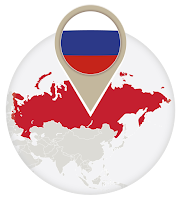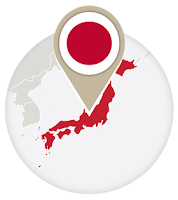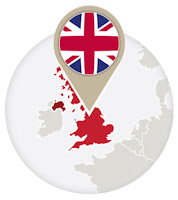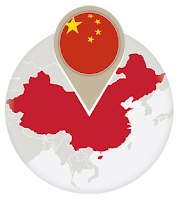 |
| Ptahhotep |
One must wonder what Ptahhotep would say about today’s discourse hurled through cyberspace with astonishing ruthlessness. He’d probably be less impressed with the technology of the internet itself, attributing it to Heka, the ancient Egyptian god of magic.
Ptahhotep is notable for his book of wisdom, “The Instruction of Ptahhotep,” a behavior guide for young men considered one of the oldest books in the world. The book contains many notable maxims about speech, which was considered a skill to be learned and mastered. The ancient Egyptians viewed rhetorical skill as a balance between eloquence and wise silence. Looking at internet discourse, we could learn a thing or two from them.
“As for the ignorant man who does not listen, he accomplishes nothing. He equates knowledge with ignorance, the useless with the harmful. He does everything which is detestable, so people get angry with him each day.”
“Only speak when you have something worth saying.”
The technology of the internet may seem like a product of magic to people who wrote on wooden tablets and papyrus, but its content might seem prehistoric in its tone to people who existed even before Egypt.
Rhetoric was considered an art up to the Middle Ages, when the Church co-opted it for propaganda purposes to convert unbelievers and to keep the believing flock in check. The European Enlightenment saw the rejuvenation of rhetoric as a skill, helping to spread democratic ideals throughout European and the American colonies.
The cornerstone of those ideas is freedom of speech and press, unheard of in Ptahhotep’s time, when allegiance to the pharaoh was a requirement. Indeed, the concept of free speech is rarely mentioned in historical texts until the European Enlightenment. (While the ancient Greeks enjoyed relative free speech at times, Socrates was put to death for speaking out against the politics of his time.) Erasmus wrote, “In a free state, tongues should be free,” in The Education of a Christian Prince,” published in 1516. John Milton wrote a pamphlet in 1644 in which he argues against restrictions of freedom of the press. What follows is a progression of free speech advances: William and Mary established the English Bill of Rights in 1689. Voltaire wrote his letter to Monsieur l’abbe' in 1770. France instituted its Declaration of the Rights of Man in 1789. The United States passed its Bill of Rights in 1791.
The United Nations made it a basic right in The Universal Declaration of Human Rights, signed on December 10, 1948. The world had just witnessed the greatest manmade destruction in human history; at least sixty million people had perished and entire cultures and civilizations were scarred for eternity. There was a genuine desire by most to end war for good.
But eras of history are too often defined by the conflicts fought within in them.
Yesterday, the UN kicked off a year-long campaign to honor this foundational human rights document. As we reflect upon the meaning of the declaration today, we do it through very different eyes than those of the post WWII era. While the latter half of the twentieth century did see significant progress in improving the lives of millions, it is alarming that this progress is being increasingly forgotten or willfully ignored, not only by those authoritarian regimes you’d expect, but by Western democracies who have been some of the greatest champions of human rights. What does it mean for the rest of us if Western democracies are discarding those principles some of us only dreamed of?
Each day we hear of attacks on free speech and press, and many of these attacks center on the internet. Hundreds or thousands of human beings languish in jails across the planet for things they have written on blogs and social media. The pathetic excuses don’t vary too much – inciting protests, blasphemy, and hate speech are the most common reasons given for detaining someone – but these are usually euphemisms for some autocrat getting his feelings hurt by online criticism or who sniffs a threat to his absolute power. “Fake news” is a recent phenomenon that is starting to be grounds for detention all over the globe, thanks to the anti-free speech and press regime that has taken up residence in the Oval Office of the United States.
But fake news really does exist, and it may have had a hand in disrupting the democratic process in the USA, the UK, and other places. Disruptive governments have employed armies of social media soldiers to spread propaganda and sow the seeds of discord wherever they feel they may benefit. The virtual monopoly that Facebook and Twitter have over online discourse without any of the constitutional guarantees provided by governments to protect speech gives a very few control over the vast majority of online global communication, but the overreliance on algorithms to patrol the message boards leaves the platforms ripe for abuse. The perils of fake news give us pause to reflect upon what free speech means in the twenty-first century and what are its limits. Like yelling “Fire!” in a crowded theater, manipulating social media for destructive purposes may cross that line. In fact, when one country does it to another, it is an act of war.
With freedom comes great responsibility. Ptahhotep wrote, “Do not repeat a slanderous rumor, do not listen to it.” It is our responsibility to think before we share, to do a little research so we do not spread falsehoods. Let's put a little dignity back into online discourse for the sake of freedom of speech. Human dignity is what the Universal Declaration of Human Rights is all about.
Our commitment to human rights is unwavering. It’s why we exist and why we continually seek to improve our suite of internet freedom tools. We’re not a big international company. We like to think of ourselves as a social enterprise, born of Africa but made for the world, especially for developing countries.
We want to protect activists and journalists from the prying eyes of oppressive governments who would imprison them.
We want to give citizens in oppressive countries the tools to circumvent censorship.
We will continue to provide free tools to achieve these aims. You can help us do that by purchasing a VPN subscription if you have the means to do so. Or not. It’s up to you. For the price of a giant international chain store cup of coffee, you can give internet freedom to those who need it. Together we can #StandUp4HumanRights.









































